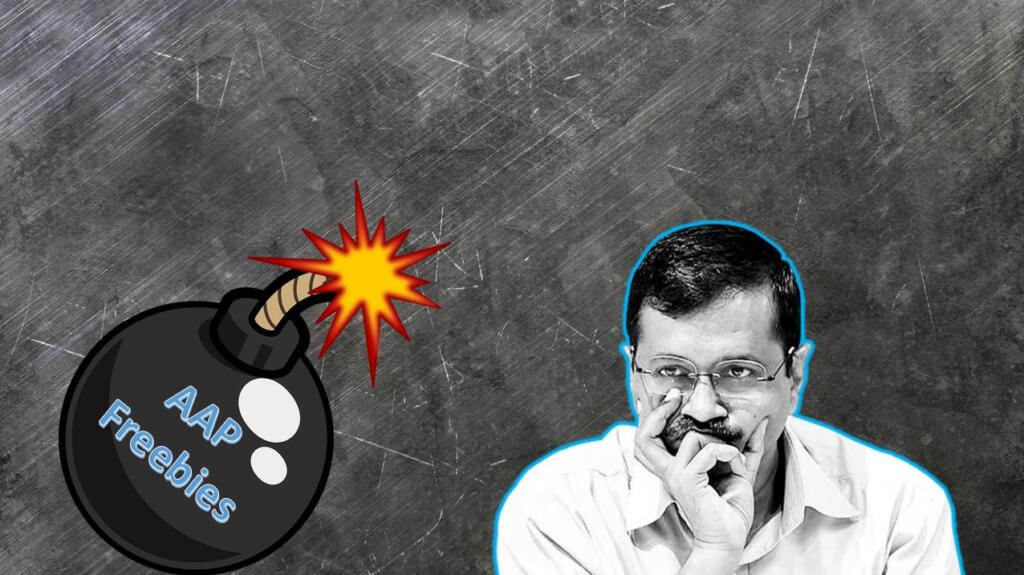Delhi CM Arvind Kejriwal has made a major announcement. Power subsidies in Delhi will now be made optional. So, why is the AAP going soft on its subsidies agenda? Let’s find out.
Read more: Arvind Kejriwal likely to get ‘unlimited terms’ as AAP’s chief
Subsidies to be made optional in Delhi
Chief Minister Arvind Kejriwal has announced that power subsidy will be made optional from October 1. Only those who opt for subsidised power will continue receiving it.
The CM said, “We get appreciation for the Delhi government’s free electricity scheme from all sections of society. But over the years, people have suggested that instead of providing subsidies to financially strong households, the money be used for schools and hospitals.”
He also said, “We will now be asking Delhi’s residents whether or not they require the subsidy, and accordingly, provide free supply of electricity to those in need.” The CM added, “The process of giving people a choice to opt for subsidised or non-subsidised electricity will begin very soon.”
This is a departure from the general narrative that the AAP has been pushing on the issue. While many suggested that subsidies and freebies were harmful to the economy and that the taxpayer’s money could be diverted to more constructive areas, the Kejriwal-led AAP insisted that the Delhi government was improving the conditions at schools and hospitals while providing subsidised water and electricity. It also claimed that the Delhi government’s finances were in good health despite the expenditure on subsidies.
The political face-off
The announcement by Delhi CM Arvind Kejriwal has now become a political issue.
The BJP has slammed the AAP on this issue. BJP MP Manoj Tiwari alleged that the Delhi CM is trying to ‘forget’ his poll promise due to the ‘dilapidated’ state of Delhi’s economy. Delhi Leader of Opposition Ramvir Singh Bidhuri too accused the AAP of forgetting its poll promises.
“Aam Aadmi Party came to power by promising free electricity and water. Now it is looking for excuses to end the electricity subsidy. Getting electricity subsidy on demand means that now consumers will hit the electricity offices and waste their time.” Similar remarks were also made by the spokesperson of Delhi BJP, Praveen Shankar Kapoor while emphasising that the model of free water and electricity is ‘collapsing’ and the economic condition of the Delhi government is ‘crippling’.
Has the freebies bomb exploded?
So, we do know that the decision to announce the rationalisation of subsidies or give the option to let subsidies go is going to have its own political costs. The BJP will make an issue out of it and even generally, the decision will look like an about-turn of sorts.
Then why has the AAP government decided to make power subsidy optional? Well, the biggest reason could be the costs involved.
In Delhi, domestic consumers get free electricity on the consumption of up to 200 units a month. Also, consumers using 201-400 units per month get a 50% subsidy capped at Rs 800 per month.
As per the government, there are 58,18,231 electricity consumer connections in Delhi. Out of this, 47,16,075 consumers get subsidies and over 30,39,766 consumers consume less than 200 units and therefore they don’t have to pay anything. The government foots their bill.
Now, many of these consumers could actually constitute the unprivileged segment of the society but many could even be resourceful, retired senior citizens or other small families who actually don’t consume a lot of electricity. They can pay their bills but the populist policy of subsidies included them in the subsidised category.
It is therefore not a matter of surprise that Delhi’s free power is actually quite costly. In March 2022, TOI reported that the Delhi government was likely to pay about Rs 3,250 crore in 2022-23 on account of subsidies to families that consume up to 400 units of electricity a month.
And when you subsidise power, the total consumption levels are bound to go up. Someone who was consuming 100 units earlier would be prompted to consume 175 units now. Similarly, one consuming 250 units earlier might think that he can consume 300 units now. This is bound to inflate the overall power consumption and the size of the subsidies.
The populist freebies had helped the AAP make significant poll gains. However, the flip side of subsidy politics is now becoming quite clear.
